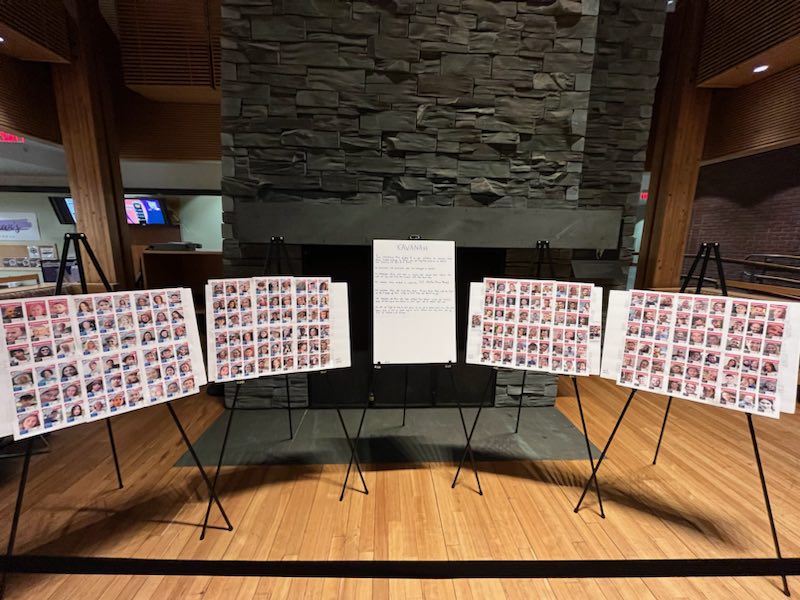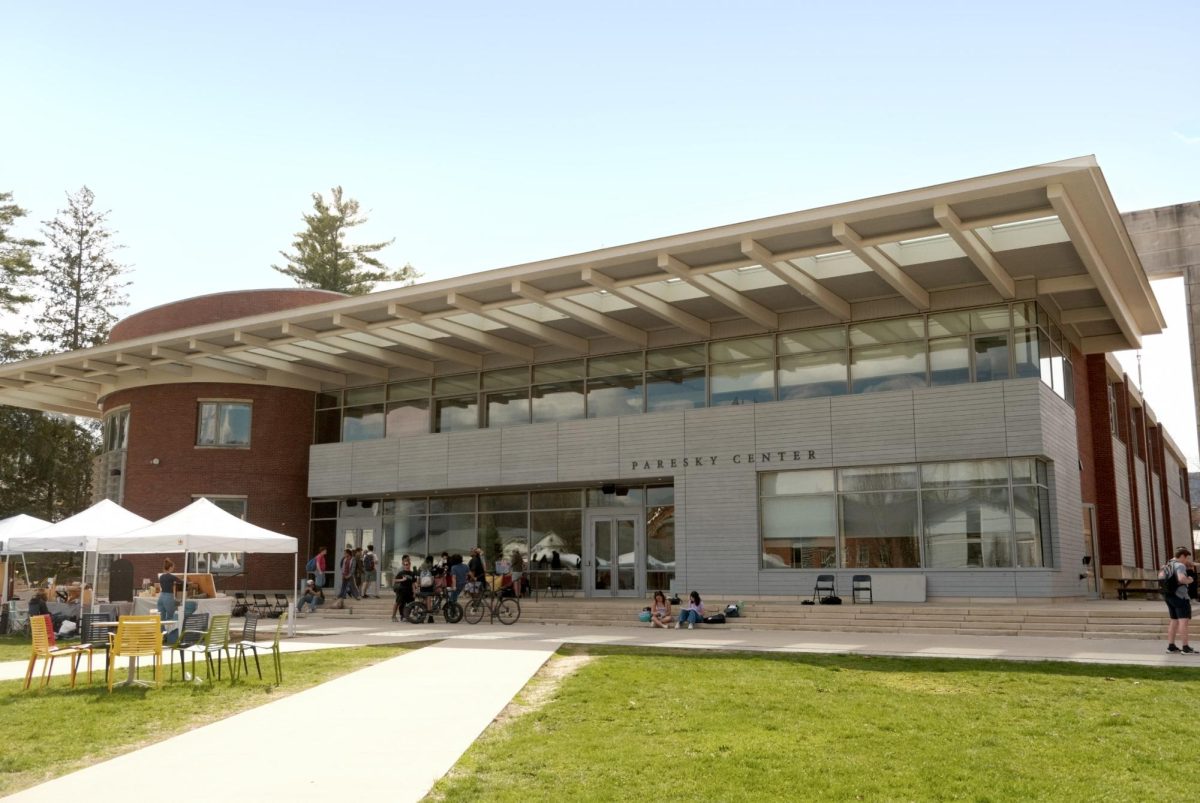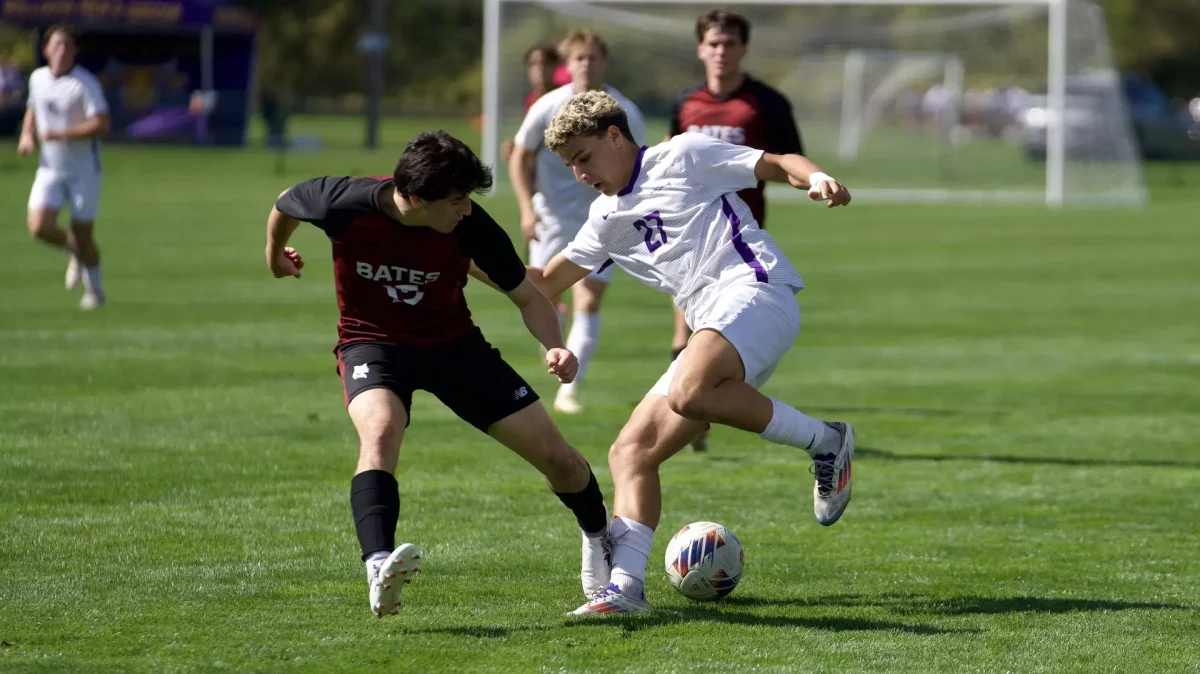
On Dec. 13, the College became aware that posters in Paresky Center had been defaced with graffiti that “supported violence against Israelis,” violating College values and policies, President Maud S. Mandel wrote in an all-campus email the following day. College staff took the posters down. The posters had originally been put up by Noah Cape ’25 and Matt Seltzer ’24 to raise awareness about Israelis held hostage by Hamas.
“It crossed the line that separates honest, even passionate disagreement from threats and justification of violence,” Dean of the College Gretchen Long wrote in an email to the Record, adding that the College would not share the graffiti’s wording with the public. “When we judge that statements are hateful enough to require the extreme measure of removing them, as in this case, it’s not helpful to then amplify them by quoting them publicly,” she said.
Mandel’s email also stated that anyone found to be involved with this graffiti, which she said violated the College’s Code of Conduct, may be subject to disciplinary action.
“Any defacement of posters is disrespectful, but the call for violence in this case is a breach of both college values and Williams policies,” she wrote, providing a link in her message to campus poster guidelines, which state that the College may remove posters it deems to intimidate or harass community members or be conducive to a hostile work or learning environment.
Cape and Seltzer first put up the posters in Baxter Hall after Thanksgiving break. They told the Record that they sought to bring attention to the Israelis held hostage by Hamas militants after they breached the Israel-Gaza border on Oct. 7, killing about 1,200 Israelis and taking 240 hostage.
As of Dec. 18, the Gaza Health Ministry reported that over 19,000 Palestinians in Gaza have been killed and over 52,000 have been injured due to Israeli attacks since Israel declared war against Hamas over two months ago.
Cape and Seltzer first noticed graffiti with statements including “Free Palestine” written across the posters, which had been moved to Paresky’s second floor because an event was scheduled to occur in Baxter, on Dec. 12. They covered the writing with paper, and the College did not declare this first round of graffiti a violation of College policy.
The next day, they heard from the College that their posters had been defaced again — this time with statements that the College said justified the killing of civilians.
“Defacing flyers is a concern in itself — it’s not a healthy way to conduct an exchange of views,” Long wrote to the Record. “But it was the call for violence that was a severe enough breach of our policies to prompt removal of the graffitied posters. It’s a high bar.”
This incident comes amid heightened attention to free speech issues in the discussion of Israel and Palestine on college campuses. In recent weeks, universities including Columbia have suspended student chapters of Students for Justice in Palestine (SJP) and Jewish Voice for Peace, with Columbia citing violations of its on-campus event policy. The presidents of Harvard, MIT, and the University of Pennsylvania have also faced calls for their resignations — which led to the resignation of UPenn President Liz Magill — after testifying before Congress that “antisemitic speech” is a violation of college policies only in certain contexts or when speech becomes conduct that can be considered bullying, harassment, or intimidation.
This is the first instance this year in which the College has explicitly labeled conduct related to student posters a violation of College policies, but it is not the first instance in which students’ posters in Paresky have been altered or removed.
Following the Record publication on Oct. 18 of an op-ed titled “What the ‘Free Palestine’ movement gets wrong,” copies of the issue covered in dark red painted handprints were hung on the Record office’s doors, around all three floors of the Paresky Center, and outside its lawn. They were removed by the College for lacking contact information for the person or group who put them up, thus failing to comply with the College’s poster policies. In another instance, members of Students Against Genocide, a group that published a Letter to the Editor in the Record titled “On ‘objective’ journalism” in response to the Oct. 18 op-ed, put up posters in Paresky with statements such as “From the river to the sea, Palestine will be free.”
That week, students placed a blank poster outside Paresky prompting community members to add messages in support of Palestine. On the morning of Oct. 24, “STOP SLAUGHTER OF INNOCENT ISRAELIS” and a Star of David were written across the poster, and that afternoon, the messages “STOP SLAUGHTER OF INNOCENT PALESTINIANS” and “This is what white fragility looks like” were added.
On Nov. 13, the College’s chapter of SJP had covered Paresky’s glass walls with a poster that stated “11,000 PALESTINIANS KILLED” and pieces of paper printed with some of the names of Palestinians killed in the bombardment below it, which were removed later that week. SJP called the posters’ removal an “attempt to silence and erase the humanity of people of Gaza,” though who took down the posters and why they did so remains unconfirmed.
Long said the College has “a high bar” for intervention regarding speech on campus and that it aims to provide room for people on campus to express their views. But, because of the College’s principles and policies, as well as Title VI, which prohibits discrimination based on race, color, or national origin in any programs which receive federal funding, Long said that “we cannot tolerate calls for violence as protected speech.”
“We’re going to enforce those rules even-handedly,” she said. “I know people look at any one instance and wonder if there was favoritism or bias at work. We can’t allow that to happen. Indeed, I expect there will be robust discussion on campus about what constitutes ‘advocating violence’: We’re going to allow a lot of room for people to debate. But we’re also going to require that such debates be conducted in ways that respect the humanity of everyone involved and don’t descend into intimidation, threats, harassment or calls for violence.”


















